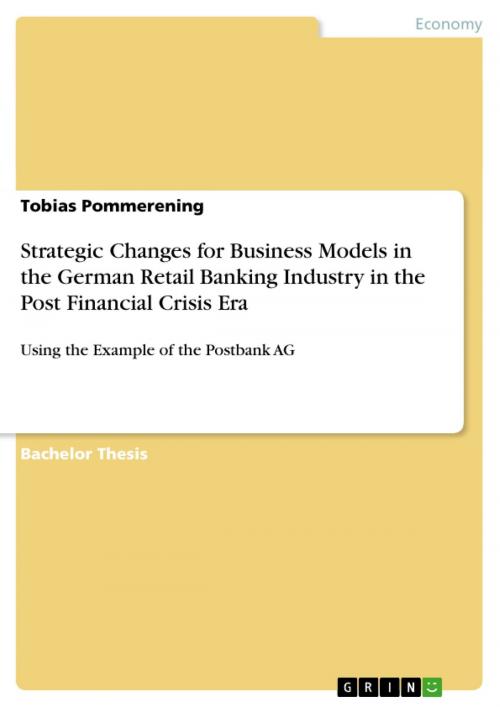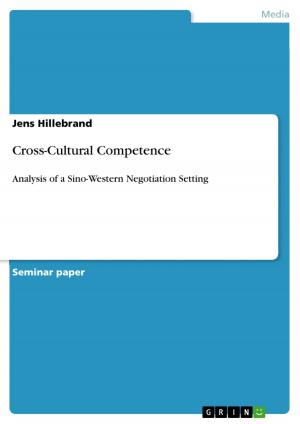Strategic Changes for Business Models in the German Retail Banking Industry in the Post Financial Crisis Era
Using the Example of the Postbank AG
Business & Finance| Author: | Tobias Pommerening | ISBN: | 9783640724109 |
| Publisher: | GRIN Publishing | Publication: | October 15, 2010 |
| Imprint: | GRIN Publishing | Language: | English |
| Author: | Tobias Pommerening |
| ISBN: | 9783640724109 |
| Publisher: | GRIN Publishing |
| Publication: | October 15, 2010 |
| Imprint: | GRIN Publishing |
| Language: | English |
Bachelor Thesis from the year 2010 in the subject Business economics - General, grade: 2.0, Baden-Wuerttemberg Cooperative State University (DHBW), language: English, abstract: The Great Recession, as the global financial meltdown has come to be called, has had devastating effects on the global economic landscape - particularly on the banking industry. While the big, multinational investment banks that were at the heart of this crisis were hit most severely, with players such as Lehman Brothers Inc. among others disappearing from the financial landscape, retail banks - institutions primarily engaged in the standard banking business with private customers - also suffered considerably from the global collapse of financial markets.1 Unlike their multinational counterparts, however, retail banks cannot rely on profitable mergers and acquisition activities or proprietary trading to boost income once the economy picks up again. While the challenges created by the Great Recession for retail banks are complex, they are not the only threat to longrun profitability. In many markets - especially in the mature western European ones, other dark clouds appear on the horizon. To name only a few, plummeting sales, narrowing profit margins, consumers' lack of confidence in the banking system and operational cost problems threaten retail banks in mature markets such as Germany.2 Postbank, a major German retail bank with a strong domestic customer base is one of the players that have to make strategic adjustments to cope with a changing economic landscape. But what will these strategic adjustments be - and in which priority do they need to be undertaken? Although literature on the financial crisis and expected changes in banking industry is paramount, so far little attention has been given to showing how strategy in the retail banking segment in the distinct geographic location of Germany will have to look like for a specific player in the post financial crisis era.
Bachelor Thesis from the year 2010 in the subject Business economics - General, grade: 2.0, Baden-Wuerttemberg Cooperative State University (DHBW), language: English, abstract: The Great Recession, as the global financial meltdown has come to be called, has had devastating effects on the global economic landscape - particularly on the banking industry. While the big, multinational investment banks that were at the heart of this crisis were hit most severely, with players such as Lehman Brothers Inc. among others disappearing from the financial landscape, retail banks - institutions primarily engaged in the standard banking business with private customers - also suffered considerably from the global collapse of financial markets.1 Unlike their multinational counterparts, however, retail banks cannot rely on profitable mergers and acquisition activities or proprietary trading to boost income once the economy picks up again. While the challenges created by the Great Recession for retail banks are complex, they are not the only threat to longrun profitability. In many markets - especially in the mature western European ones, other dark clouds appear on the horizon. To name only a few, plummeting sales, narrowing profit margins, consumers' lack of confidence in the banking system and operational cost problems threaten retail banks in mature markets such as Germany.2 Postbank, a major German retail bank with a strong domestic customer base is one of the players that have to make strategic adjustments to cope with a changing economic landscape. But what will these strategic adjustments be - and in which priority do they need to be undertaken? Although literature on the financial crisis and expected changes in banking industry is paramount, so far little attention has been given to showing how strategy in the retail banking segment in the distinct geographic location of Germany will have to look like for a specific player in the post financial crisis era.















